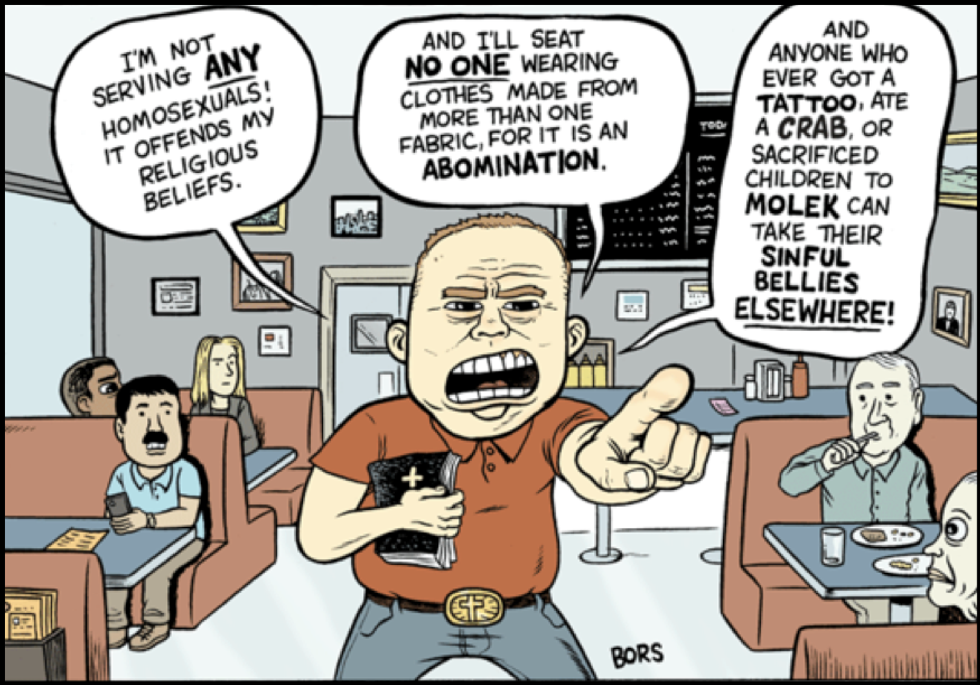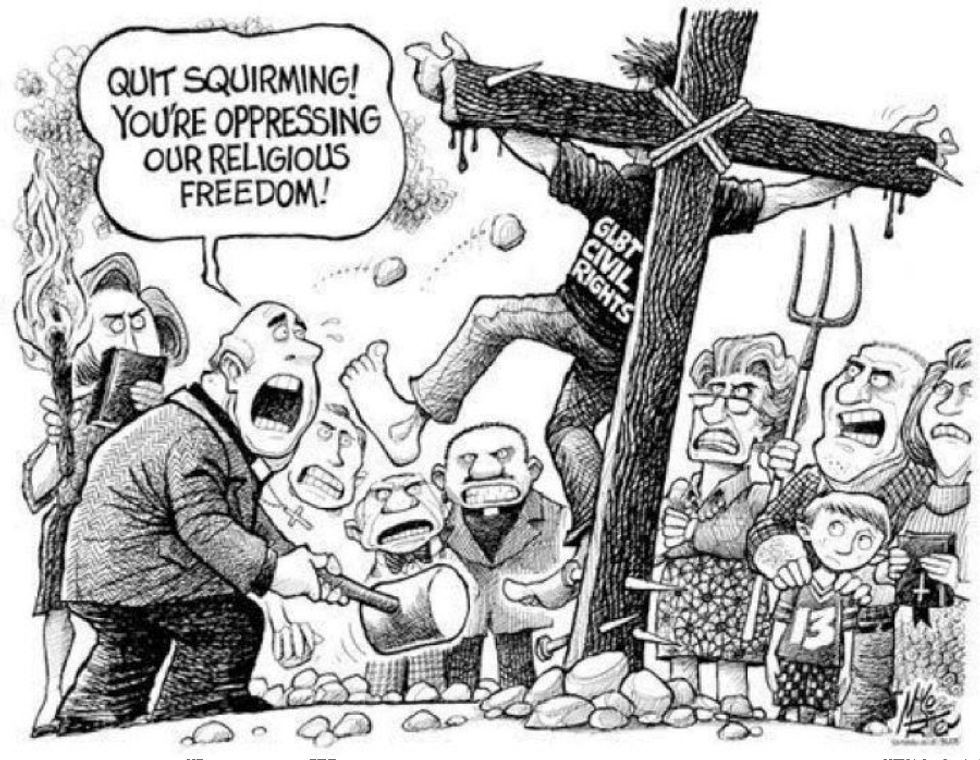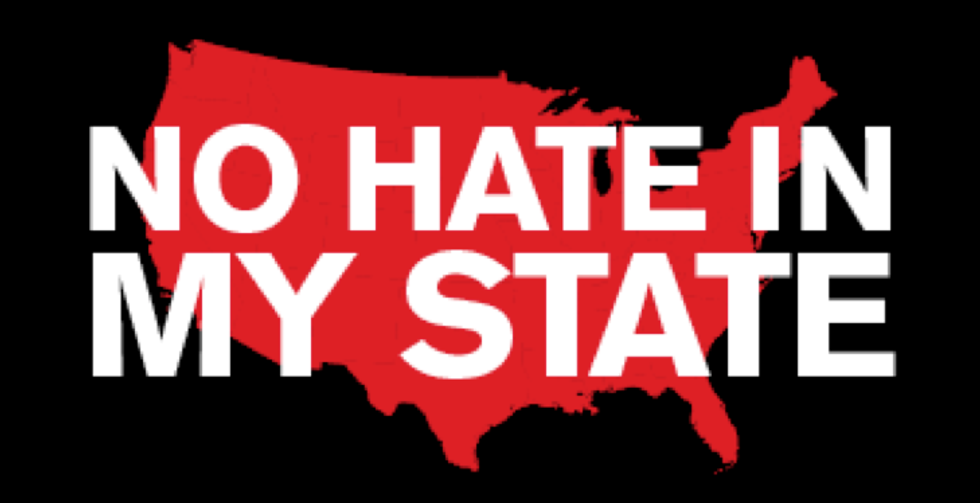"Claiming Freedom, Shunning Gay People"--This is the title of a CNN segment on the recent rise of "religious freedom" bills. The absurd notion that Americans deserve the right to discriminate against people outside a particular religious ordinance is the argument for these laws.
And in spite of the fact that the refusal of service based on different characteristics is a blatant flashback to the era of "no colored" signs, there is still a frightening amount of support for these bills, especially in government.
Recent legislation that falls into this category of legal discrimination include Mississippi's bill allowing businesses to refuse services to LGBT people based on religious objections, North Carolina's dropping its government LGBT discrimination protection and passing a law requiring transgendered school students to use facilities based on the gender that appears on their birth certificate, and the fortunate veto of Georgia's bill that would have given faith-based groups the right to deny service to LGBT customers.
And these are just the well-known ones, other states have been contemplating their own forms of legalized hate, such as Tennessee's pending law that would allow therapists and counselors to object to seeing LGBT clients.
But as infuriating as these measures are, it isn't all bad news: attention is finally being brought to these issues. Politicians, businesses, and citizens alike are calling out the proponents of hatred, correcting the ridiculous idea that the ability to discriminate "protects" religious freedom.
In Indiana, a law giving Christian businesses permission to refuse services to LGBT people was amended due to cases of discrimination so obviously unconstitutional that they could no longer be backed by government. The recent situation in Georgia was a unique one and is paving the way for resistance against legalized discrimination.
Corporations such as Marvel, Netflix, and The Walt Disney Company took a stand and declared that if the law was passed, they would pull all projects taking place in the state. These moves not only provided Georgia's legislators with compelling economic reasons to veto, but also made a statement about the morals of the companies.
Using their positions in both the American economy and the lives of many, these groups' standing against discrimination is a powerful step forward in the fight for justice. Other organizations and investors, such as the NFL, NCAA, Silicon Valley, Salesforce, and Tyler Perry also associated their names with the boycott.
Over in North Carolina, PayPal has canceled a $3.6 million dollar investment, Lionsgate's filming of "Dirty Dancing" which may no longer be shooting in the state, and the NBA is threatening to move the All-Star game elsewhere.
And even in Mississippi, the state with the most support behind their law, some of their major employers like Tyson Foods, MGM Resorts International, Nissan, and Toyota have openly opposed the measure. Vermont, Washington, and New York's governors have banned all official state-funded travel to Mississippi, with Washington, D.C. considering a similar ban soon. Washington and New York have done the same regarding travel to North Carolina.
So as terrible as it is that legalized discrimination in the United States is still being debated, there's a silver lining, thanks to powerful groups taking a stand. As mentioned before, the influence that these groups have in both economic and social matters is being used for good, especially because corporations often remain impartial for the sake of their business. Moral is finally beginning to carry the same weight that money does, and Americans are finally realizing that discrimination is a real issue and in need of attention. Every step taken to erase hate from government and minds is a step towards liberty and justice for all.








 StableDiffusion
StableDiffusion
 full parking
StableDiffusion
full parking
StableDiffusion


 Photo by
Photo by 








